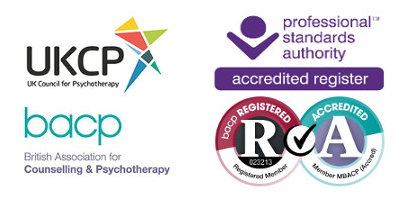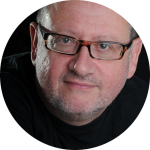Couples Counselling & Marriage Guidance in Notting Hill
If your relationship is troubled and you are finding it hard to talk to each other and to resolve differences, talk with Marcus, Marriage Guidance and Couples Counsellor in London
It can feel like big step coming to couples counselling to talk about your relationship, especially if one partner is keen and the other is resistant, which is often the case.
Couples Counselling is not about laying blame
During Couples Counselling you should not be looking primarily for someone to referee your conflicts or to finally convince your partner that they’re in the ‘wrong’. Lovers do awful things to each other, but at some point you must be willing to move forward, to acknowledge the part you probably both play in the partnership difficulties, and to learn how to have difficult but necessary conversations.
How does Couples Counselling work?
In couples counselling we look at your bonding patterns, largely based in your own childhood experiences of bonding. We explore how you trigger each other emotionally and how to make sense of that, so that you can each step back, see what is going on, and respond rather than react. Affection and even sexual attraction can return when problems and tensions are resolved, and you can once again feel yourselves to be a warm, loving team.
A couple counsellor does not take sides, but is on the ‘side’ of the relationship. The therapist’s goal is to get both parties to begin to really listen and hear each other, to each see the other partner’s perspective, and to learn about what you each need as individuals and what limits or boundaries you yourself need to set.
“I want to love you without clutching, join you without invading, invite you without demanding, leave you without guilt, criticize you without blaming, help you without insulting.” Virginia Satir, author and social worker
Couples Counselling is about learning to accept each other’s differences
In many ways, partners are meant to become more different as time passes, not more similar. Ageing is about ‘differentiating’ as individuals. Disapproval, disillusionment, criticism and nagging are a natural part of that process – but there is a skill to both giving and receiving criticism in a way that does not undermine your partner or erode your relationship. If you focus on staying connected or re-connecting rather than the ‘content’ of the argument it can help greatly.
There is a big difference between a real relationship and the romantic mythology about what a couple is supposed to feel, think or do (which could be called a ‘loveship’ rather than a ‘relationship’).
How Couples Counselling helps Communication
One of the most important goals of couple counselling is to improve communication. Couples often get overly concerned about being ‘right’. Remember, when you are arguing, that deep down your partner wants to connect with you.
The couples counsellor can facilitate productive communication and create a safer place in which to express feelings, moving the focus away from ‘right’ and ‘wrong’ and back on to the feelings underneath.
It is also important to understand what is already being communicated ‘between the lines’.
For example, when one partner creates space from the other, perhaps by distancing themselves emotionally from their partner, are they communicating?
“I don’t need you”
Or are they saying?
“I don’t know what to do with you”
If they are reaching out, is it willful and demanding, or is a heartfelt effort to make contact?
In Couples counselling we explore what is going on at several levels including the unconscious level.
- Is there, for example, a misunderstanding around key gender differences between a husband and wife?
- Is one party only good at listening and the other only good at talking?
- Are there simply inadequate tools for communicating, and what can be done about that?
- Are the partners spending enough time together?
- Do they make regular time to talk?
5 Relationship Stages Model of Couple Counselling
This 5-stage model of relationships often helps life partners make sense of what they are experiencing. People can come to couples counselling at any one of these 5 stages. The 5 stages are:
- ATTRACTION (when you see the best in each other, and little effort is required to feel loving or loved).
- MAINTENANCE (getting to know each other through day-to-day living). You are comfortably close but avoid becoming closer. You may not yet feel safe enough to be fully yourself or to say what you feel. One partner may become quiet and submissive instead of risking showing anger and passion. The other partner may be angry and critical rather than risk showing their vulnerability.
- POLARISATION. Conflicts and arguments arise and distance is created. You may be caught up in hurt feelings and begin to distrust each other. This phase can be triggered when a greater commitment is made, such as moving in together.
- HEALING. Conflicts are worked through. You come to appreciate the limits of what your partner can give and how to love and nourish yourself when they can’t. You learn to risk trusting again.
- INTIMACY. More trust and better communication bring security, closeness and a strong emotional bond.
Couples Counselling and Abusive or Controlling Behaviour and Jealousy
A degree of conscious or unconscious control of each other occurs through our attempts at getting needs met whilst avoiding feeling vulnerable. Often arguments supposedly over nothing are really power struggles over who is going to be ‘right’ and who will be vulnerable. Couples counselling gives both parties the opportunity to become aware of their manipulations and attempts to control each other. Once couples become aware of their bonding pattern there is usually the willingness to work together to heal past hurts and connect more intimately.
There is another kind of controlling behaviour, which is associated with an attitude of (usually) masculine entitlement. This goes along with a marked absence of compassion, and a range of manipulative or even intimidating behaviours. In abusive relationships [link to Abuse page], the one on the receiving end of the abuse generally stays in the relationship out of confusion and bewilderment. Success in rethinking entitlement beliefs depends on a controlling partner’s willingness to look at himself and to be genuinely wishing to improve the relationship. He needs to shift beliefs like:
An argument should only last as long as my patience does.
- If the issue is important to me then I should get what I want.
- I know what’s best for you and for our relationship, and if you continue disagreeing, you’re being stupid.
- If my control is slipping, I have a right to re-establish the rule of my will … through abuse if necessary.
- I’m entitled to shame, blame, criticise and use ‘character assassination’ regardless of how it makes you feel demeaned and hurt.
Lundy Bancroft in his excellent book ‘Why Does He Do That?’ identifies these distinct types of controlling partner:
Demand Man: is ‘entitled’.
Mr Right: is always ‘right’.
Water Torturer: stays calm in arguments, and gets under your skin, psychologically.
Drill Sergeant: seeks to control your every move.
Mr Sensitive: uses psychobabble, and the focus is on his hurt feelings.
The Player: ‘If you need anything from me, I’m going to ignore you’.
Rambo: believes strength and aggression are good.
Victim: having had it so hard, is not responsible for his actions.
Terrorist: says, ‘You have no right to defy or leave me.’
Addicted Abuser: says, ‘Do not challenge me, as it would trigger my addiction.’
Jealousy is related to our natural herding instinct, the desire to possess. It is part of the human experience to feel strongly that “This is mine” or “You are mine”. But when the jealousy is acted out through extreme possessiveness, monitoring or stalking, the relationship has moved into abuse territory.
Couples Counselling following an affair : should the relationship continue and can it continue?
Extramarital affairs or affairs outside a relationship are among the greatest challenges a couple may need to face. They can lead a couple to the brink of divorce, but it is really not possible at the outset to know for sure the impact of dishonesty and betrayal on a relationship. Couples counselling following an affair provides a framework to hold off making any really big decisions and allow time to work things through.
It is hard for either party to maintain their dignity at such times. The betrayer will usually be defensive but needs to take responsibility for what they have done. If they stay open and present with their partner, through all the partner’s anger and pain, there is often a good chance to re-establish the connection and heal the relationship. Blind trust is in time replaced by earned, informed trust, based on honest and open communication and an understanding of the complexities of human nature and an awareness of what perhaps could not previously be spoken of in the relationship, whether it be sexual problems, commitment issues, ageing and the empty nest syndrome, etc.
Other kinds of couple in couples counselling
Even in a non-sexual relationship, humans have a need for emotional intimacy, and that can be hard to achieve. Couples counselling is sometimes used by people who are not life partners, but friends or close relations. If a mother and daughter are not getting on well, for example, and the issues between seem endlessly recurring, couple counselling sessions can provide an excellent, safe space for improving communication and airing their issues in a constructive manner.
Couples Counselling & Marriage Guidance in Notting Hill
Take the first step to improving your relationship and contact Marcus to discuss Couples Counselling.
Here are some interesting articles and pages on Couples & Relationships that you might find helpful
One-in-Five Relationships in Crisis
A recent study warns 3 million people regularly argue or consider divorce – and 1.4 million families are ‘at breaking point;
Read the full article …



